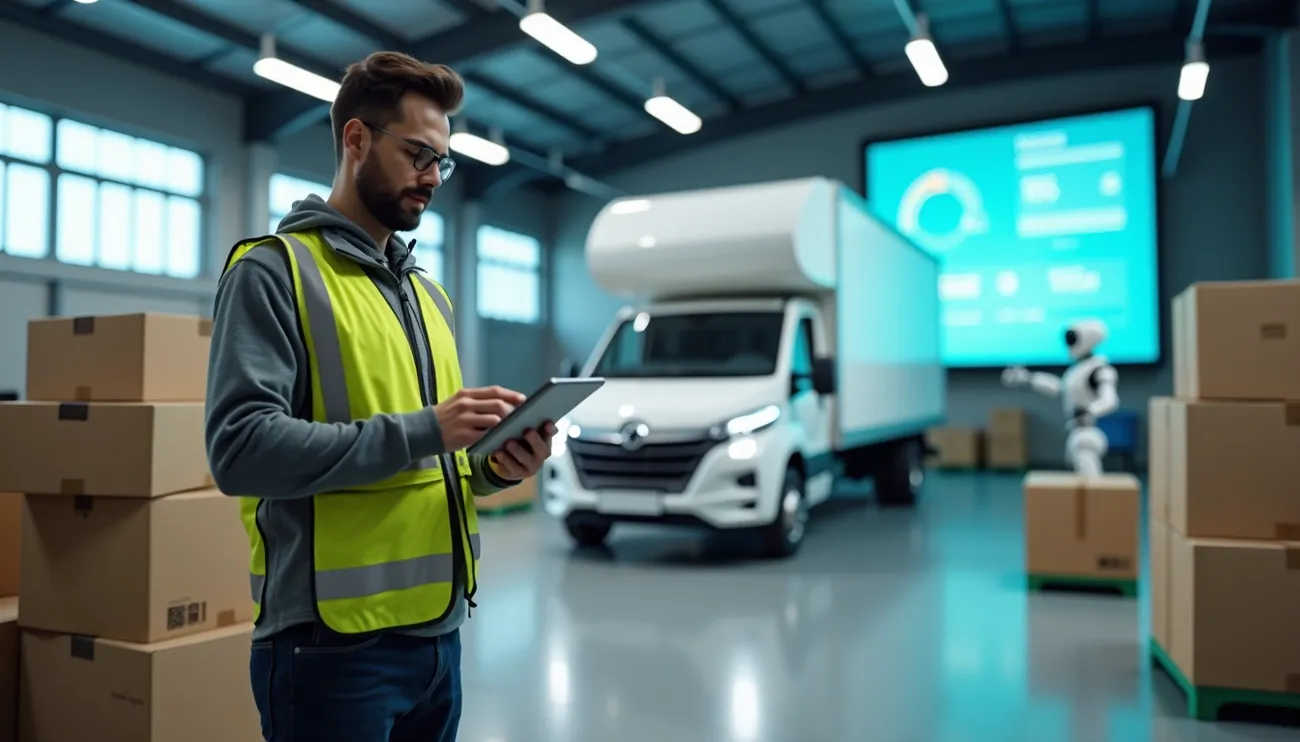Why Moving Technology in 2025 is Making Traditional Moving Services Obsolete
Technology has changed the moving industry faster than ever, and traditional manual processes are becoming obsolete.

Technology has changed the moving industry faster than ever, and traditional manual processes are becoming obsolete. AI-powered route planning tools analyze up-to-the-minute traffic data, road conditions, and weather forecasts. These tools help determine the quickest and most economical routes that reduce delays and fuel expenses.
Customer expectations across America continue to evolve with new technological developments. Companies no longer rely on in-person estimates and paper tracking. AI-driven tools now analyze home layouts, inventory, and distance to generate precise quotes instantly. AI chatbots handle routine questions immediately, saving valuable time for customers and the core team. Virtual moving technology creates a more transparent, smoother experience, with customers receiving instant updates throughout their relocation.
This piece is about how modern moving companies use artificial intelligence to revolutionize relocation. It covers everything from predictive analytics and smart inventory systems to sustainability initiatives, along with what to expect from moving technology in 2025 and beyond.
The New Customer Experience in Moving
Modern customer-focused technology is completely changing how people move homes. Moving services no longer just solve problems; they help customers participate actively. This puts customers in control of their moving experience.
Instant quotes through virtual moving technology
The days of scheduling in-person estimates and waiting for moving companies to assess your belongings are over. Virtual moving technology helps customers get accurate quotes almost right away. Customers can do virtual walkthroughs of their homes using smartphone cameras while moving consultants assess remotely. This saves time substantially and gives busy clients a convenient option.
Virtual surveys have become increasingly popular, with 99% of customers choosing them when available. These digital walkthroughs take about half the time of traditional in-person surveys but are just as accurate. AI-powered survey tools can spot items during video walkthroughs and create detailed visual inventories immediately.
Experience tech-powered moving. Start your quote now on WeMove.ai
Real-time updates and tracking
Constant communication is the lifeblood of modern moving. Customer portals and mobile apps now provide:
- GPS tracking of moving trucks (where available)
- Digital access to all moving documents
- Secure payment processing
- Immediate shipment status updates
- Direct communication with moving teams
The numbers show that 84% of customers say they want to be treated like people, not numbers, to earn their business. Moving companies give customers smooth control and visibility by sending instant notifications and providing 24/7 access to information. This reduces anxiety during what used to be a stressful process.
Multilingual AI chat support
Modern moving technology breaks down language barriers through AI-powered communication tools. Moving companies use intelligent chatbots and virtual assistants that provide smooth support in multiple languages. This ensures clear communication, regardless of the customer's primary language.
These AI agents work around the clock. They handle everything from the first questions to post-move feedback. They understand context, emotions, and intent, which makes interactions feel natural rather than robotic. On top of that, they give tailored responses based on previous conversations. This creates a personal touch that makes customers feel valued and understood.
Behind the Scenes: How AI Powers Modern Moves
Modern moving services offer customers great convenience, while AI systems work behind the scenes to handle every aspect of the relocation process. Smart technologies are changing how moving companies operate. Manual processes are becoming outdated.
Predictive analytics for demand and scheduling
AI algorithms are transforming logistics by analyzing data from thousands of past relocations to forecast future demand accurately. The supply chain market, driven by predictive analytics, will grow by 11.7% annually through 2032. Moving companies can now be proactive rather than reactive.
Moving businesses can spot peak seasons, use resources effectively, and manage their fleet more effectively through data analysis. AI helps companies understand customer priorities and moving trends. Movers can keep the right capacity without stretching resources too thin, which cuts costs and makes service more reliable.
AI-driven inventory and packing systems
Image recognition has changed how virtual moving technology handles inventory. AI quickly lists items, calculates weight, volume, and required labor when customers upload photos or videos of their belongings. This technology stops items from getting lost, a problem that affects 20% of long-distance moves.
AI packing solutions analyze object shapes and sizes to find the fastest way to pack items. Trucks and storage units use space better, and fragile items get the care they need. AI-driven packing systems waste less material and use capacity better.
Smart home integration post-move
AI technology goes beyond just moving things. Virtual assistants powered by AI help customers set up their new homes, from connecting utilities to placing furniture. These services offer tailored suggestions based on what customers like, making settling in easier.
BeHome247 Home Automation System offers simple plug-and-play installation for people with smart homes. Customers can control all their smart devices from one easy-to-use portal on their phones, tablets, or computers, making the move to their new space smoother.
Safety, Sustainability, and Smarter Operations
Technology in the moving industry creates safer environments for workers and customers while optimizing logistics. Safety improvements and environmentally responsible practices work together to transform how the industry operates.
AI monitoring for driver and cargo safety
Moving companies now use AI-powered monitoring systems that watch over operations 24/7. These systems connect to existing cameras and create preventive safety measures without new hardware installations. One provider showed an amazing 1152% increase in detecting unsafe behavior. This allows companies to fix potential issues before accidents happen.
The results of these technologies are impressive in real-life applications. Companies that use AI safety systems cut overall incidents by 80% and reduce safety events by 62%. Moving companies' distracted driver detection systems showed 91% accuracy and stopped 80% of distractions.
Eco-friendly packing and route planning
Moving supplies generates significant waste in landfills. Moving companies tackle this issue by using biodegradable packing materials and reusable options. Some sustainable choices include cornstarch-based packing peanuts that dissolve in water and recycled paper alternatives.
AI-powered route planning makes travel paths better by analyzing live traffic, weather, and road conditions. Smart planning cuts fuel use, greenhouse gas emissions, and environmental effects. Better routes mean fewer trips, which reduces each move's carbon footprint.
Wearable tech for worker safety
Moving industry workers deal with tough physical demands. Exoskeletons—once found only in science fiction now offer practical help by taking up to 50lbs of weight off workers' backs. These devices prevent long-term injuries and reduce lost workdays.
Wearable safety devices track vital signs and environmental conditions alongside physical support. Smart helmets monitor location, pulse, and body temperature, and alert nearby team members to potential dangers or emergencies. These new ideas helped companies cut ergonomic-related injuries by 65%.
The Future of Moving Technology in America
Technology reshapes domestic relocations every day, and state-of-the-art solutions now cross borders to change international moving experiences. Companies and customers benefit from these worldwide advancements in unprecedented ways.
Global logistics and AI in international moves
AI solves unique challenges in international relocations. Smart algorithms now streamline cross-border move planning and cut delivery times by 30%. These systems learn from historical and immediate data to improve efficiency. Companies report a 40% drop in operational costs through automation.
Customers get peace of mind with immediate shipment tracking across countries. AI-powered translation tools break down language barriers, so customers can talk easily with moving companies, no matter their location.
Experience tech-powered moving. Start your quote now on WeMove.ai
Blockchain and data security in relocations
Moving companies need robust security measures to protect their customers' sensitive information. Blockchain provides them with a permanent, unchangeable way to store data, creating accountability during moves.
Smart contracts release payments only after successful service delivery. Digital signatures and timestamps document each item's condition, which creates solid evidence for insurance claims. This open approach builds trust and protects sensitive information such as addresses and credit card data.
What to expect from moving technology in 2025
Industry experts see AI as a revolutionary force for moving companies in 2025. AI voice agents will become the norm for handling after-hours calls. They will capture customer information and feed it directly into automation systems.
Companies that embrace these changes will provide tailored experiences through AI platforms that adapt to customer needs. Smart virtual assistants will use data from relocation policies, destinations, and family needs to create custom moving experiences. The most forward-thinking moving companies will use AI to boost productivity and profit margins significantly.
What's next
Technology is transforming the moving industry faster than ever before. AI-driven solutions now tackle tasks that once needed manual labor and paperwork. This saves time, cuts costs, and brings a new level of transparency. Virtual surveys have become the go-to choice for 99% of customers. Clients can now track their entire moving experience in real-time.
AI systems work around the clock to streamline operations behind the scenes. Evidence-based forecasting helps companies predict customer needs with amazing accuracy, which lets them use their resources wisely. AI-powered inventory systems have solved the lost items problem that used to affect 20% of long-distance moves. Safety breakthroughs show impressive results too - companies have cut incidents by up to 80% with AI monitoring systems.
The landscape in 2025 looks promising for moving companies that welcome these tech advances, while traditional services might fade away. Blockchain technology will boost security for customer data, and AI voice agents will become the norm for customer service. Companies that adapt to these changes will lead the way forward.
Tech adoption has gone from an advantage to a crucial survival factor. Companies that ignore this digital shift risk getting left behind. Customers now need the convenience, transparency, and efficiency that tech-powered moving services deliver. Traditional moving methods will likely disappear as the industry moves toward a smarter, safer, and more environmentally responsible future.
Key Takeaways
The moving industry is experiencing a technological revolution that's making traditional services obsolete, with AI-powered solutions delivering unprecedented efficiency, safety, and customer satisfaction.
• Virtual surveys replace in-person estimates: 99% of customers now choose virtual walkthroughs over traditional estimates, saving time while maintaining accuracy through AI-powered inventory recognition.
• AI monitoring dramatically improves safety: Companies using AI safety systems achieve up to 80% reduction in incidents and 91% accuracy in distracted driver detection.
• Predictive analytics optimize operations: AI analyzes thousands of past moves to forecast demand, reduce costs by 40%, and cut delivery times by 30% through intelligent route planning.
• Real-time tracking transforms customer experience: GPS monitoring, instant updates, and 24/7 multilingual AI support give customers unprecedented control and visibility throughout their move.
• 2025 will separate leaders from laggards: Moving companies embracing AI voice agents, blockchain security, and personalized automation will thrive while traditional services become obsolete.
The shift from reactive to proactive, AI-powered services isn't just improving efficiency—it's fundamentally redefining customer expectations and industry standards for the future.
FAQs
Q1. How is AI changing the moving industry in 2025? AI is revolutionizing the moving industry by providing instant quotes via virtual surveys, enabling real-time shipment tracking, and using predictive analytics to optimize operations. It's also enhancing safety through AI monitoring systems and improving customer service with multilingual AI chat support.
Q2. What are the benefits of virtual moving technology? Virtual moving technology allows customers to receive accurate quotes almost immediately through smartphone-based virtual walkthroughs. This saves time, provides flexibility for busy clients, and maintains the same accuracy as traditional in-person surveys while taking only half the time.
Q3. How is moving technology addressing sustainability concerns? Moving companies are adopting eco-friendly practices by using biodegradable packing materials and implementing AI-powered route planning. These measures reduce waste, minimize fuel consumption, and lower greenhouse gas emissions, making the moving process more environmentally friendly.
Q4. What safety innovations are being implemented in the moving industry? The industry is implementing AI-powered monitoring systems for driver and cargo safety, wearable tech like exoskeletons to reduce physical strain on workers, and smart helmets that track vital signs and environmental conditions. These innovations have significantly reduced incidents and injuries in the workplace.
Q5. How will blockchain technology impact moving services? Blockchain technology is enhancing data security in relocations by providing an immutable method of storing sensitive customer information. It enables smart contracts for secure payments and creates indisputable evidence for insurance claims, increasing transparency and building customer confidence in the moving process.

